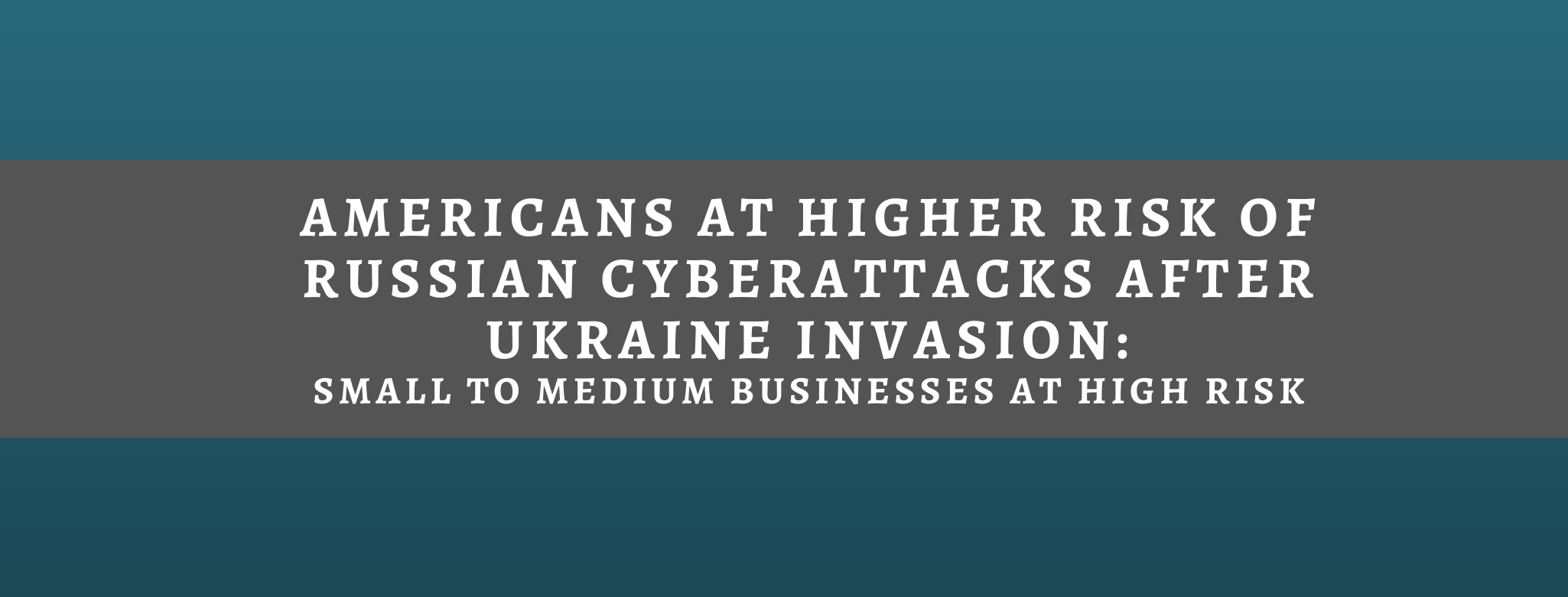Americans at Higher Risk of Russian Cyberattacks After Ukraine Invasion:
Small to Medium Businesses at High Risk
The price for being lax on cybersecurity can be steep. A few years ago, a five-person firm was attacked. The ransom was $50,000. They most likely hacked several weeks prior to the ransom demand, on an unpatched system with weak passwords. They had stolen financial data and were threatening to expose it if they were not paid. This is not an out of the ordinary experience. So, what is a business to do?
The good news for small businesses: There are simple, practical steps to prevent ransomware attacks that do not require big budgets, more technology or hiring staff, says Karen Evans, managing director of the Cyber Readiness Institute.
Back up your files
Frequently back up your system so if it becomes infected with ransomware, you can restore it. Store backups on a separate device that cannot be accessed from a network.
If a ransomware attack happens and data becomes encrypted, you will still be able to restore systems if you have a an offline backup (separate hard drive, etc.)
It is also important to regularly test backups.
Use multifactor authentication
A Microsoft study estimated that more than 99% of all cyberattacks would have been prevented by multifactor authentication.
Update and patch software
Make sure all operating systems, software and apps are running the latest versions.
Use antivirus software
Install antivirus and antimalware software, use firewalls and other tools, and keep them updated.
Handle email with care
Be careful when clicking on links in emails even if the sender appears to be someone you know. If you are not sure, contact the sender directly.
Malicious website addresses are often very similar to legitimate ones but have slight variations in spelling or a different domain, such as .net instead of .com.
Open email attachments with caution, especially when they are compressed or ZIP files.
It is important to visit a website directly and do not trust links in emails or even SMS messages, which can all take you to a psuedo site.
Treat employees as your first line of defense
Your employees can be your strongest asset, so it is crucial to train and educate all employees on how to identify phishing and social engineering.
With a few simple steps you can help prevent immeasurable damage to your business.
-Colorado Workforce Center
Questions?
Contact us at 719-589-3681 or email AlamosaCountyChamber@gmail.com.
















